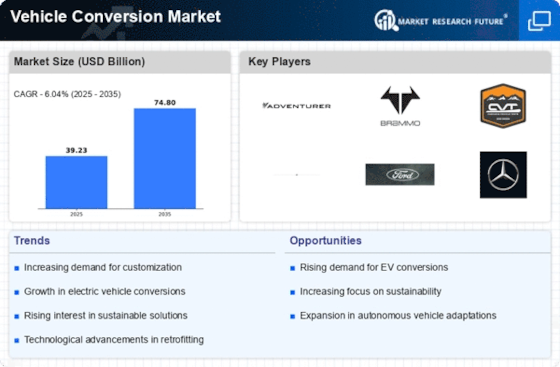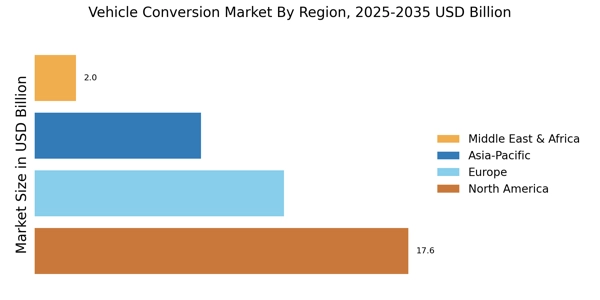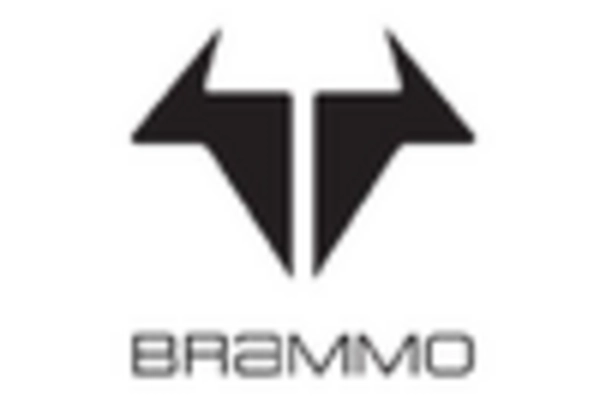Regulatory Support
Regulatory support for vehicle conversions is a crucial driver in the Vehicle Conversion Market. Governments worldwide are implementing policies that encourage the adoption of alternative fuel vehicles, including electric and hybrid models. For example, tax credits and rebates for electric vehicle conversions have been introduced in various regions, stimulating market growth. This regulatory environment not only incentivizes consumers but also encourages manufacturers to innovate and expand their offerings. As regulations continue to evolve, the Vehicle Conversion Market is likely to experience increased activity, with more players entering the market to capitalize on these opportunities.
Rising Fuel Prices
Rising fuel prices are significantly impacting consumer behavior, thereby influencing the Vehicle Conversion Market. As fuel costs continue to escalate, many consumers are exploring alternative options, including vehicle conversions that enhance fuel efficiency. This trend is particularly evident in the growing interest in converting traditional vehicles to electric or hybrid models, which can offer substantial savings on fuel expenses. Market data suggests that conversions can lead to a reduction in fuel costs by as much as 50% over time. Consequently, the Vehicle Conversion Market is poised for growth as more individuals seek cost-effective solutions to rising fuel prices.
Sustainability Initiatives
The increasing emphasis on sustainability appears to be a driving force in the Vehicle Conversion Market. As consumers and businesses alike seek to reduce their carbon footprints, the demand for eco-friendly vehicle conversions is likely to rise. This trend is evidenced by the growing number of electric vehicle conversions, which have surged by approximately 30% in recent years. Furthermore, government incentives for electric and hybrid vehicles may further bolster this market segment. The Vehicle Conversion Market is thus positioned to benefit from these sustainability initiatives, as more individuals and organizations prioritize environmentally responsible choices in their transportation options.
Technological Advancements
Technological advancements in vehicle conversion processes are transforming the Vehicle Conversion Market. Innovations such as improved battery technologies, lightweight materials, and advanced software for vehicle management systems are enhancing the efficiency and performance of converted vehicles. For instance, the integration of smart technology in conversions has been shown to increase energy efficiency by up to 20%. As these technologies become more accessible, the market is likely to witness a surge in conversions, particularly in electric and hybrid vehicles. This trend indicates a shift towards more sophisticated and efficient vehicle conversion solutions, appealing to a broader consumer base.
Increased Demand for Mobility Solutions
The increasing demand for diverse mobility solutions is shaping the Vehicle Conversion Market. As urbanization accelerates, consumers are seeking flexible transportation options that cater to their specific needs. This trend has led to a rise in customized vehicle conversions, allowing for personalized features such as additional seating, storage, or specialized equipment for various activities. Market analysis indicates that the demand for such tailored solutions is expected to grow by approximately 25% in the coming years. The Vehicle Conversion Market is thus adapting to meet these evolving consumer preferences, fostering innovation and creativity in vehicle design and functionality.


















